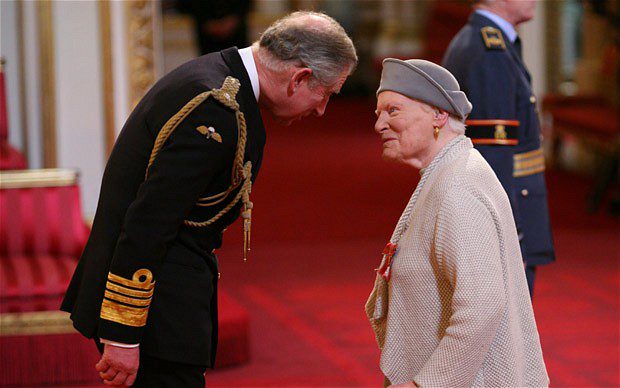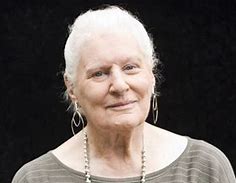Diana Athill: Editor


This lovely handsome woman, Diana Athill, raised me from the deepest well I had yet descended, one from which daylight seemed permanently obscured. I learned about her from an article in the mid-1980s, a British editor who had discovered V. S. Naipaul, the Indian writer from Trinidad, and I was bumptious enough to imagine that publishing one Indian she might publish another.
I was then in the process of writing my first novel, working fulltime at the Sears Tower at a job that did little more than pay the bills, and ploughing through vacation days scribbling my story first into umpteen spiralbound notebooks, then to about 800 manuscript pages on my electric typewriter—and, finally (for a permanent transcript), onto the Apple IIe of a friend who gave me the keys to her house to come and go at my convenience. I would go into states of fugue on Friday nights, incurring constant headaches, backaches, wrist-cramps, emerging Monday mornings wondering what had happened to the weekends, receiving for my pains forty rejections in the space of four months from a nest of editors, agents, and publishers, dashing in months the hopes of years. Indian-Americans were not the stuff of novels, barely even on the radar of other Americans, and I sank below the water line of my well of despondence.
I experienced a syncope at work, passing out apparently in the midst of uttering gibberish, was rushed by ambulance to a hospital, suffering from an irregular heartbeat (among other things), advised to relax, and given 2 weeks from work to recuperate, during which time I recalled the article about Diana, calculating that the old colonial ties might succeed where talent, imagination, and industry had failed. I sent her my Prologue: Arab armies reducing the Persian Empire to a Persian rug juxtaposed with a striptease by an artist’s model in a small town motel room in Pennsylvania. Diana asked for the rest of the novel and I began once more to tread water in my well.
She replied shortly to say she wanted to publish the book. I would be hearing next from Tom Rosenthal, head of Andre Deutsch (the publishing house). I imagined Tom would be calling to give me a timeline toward publication, but the first thing he did was offer me an advance matching half a year’s salary at Sears. I was dumbstruck and wrote the figure on my calendar so it wouldn’t later appear to be a dream. I was silent so long that Tom asked in the deepest and Englishest of accents: “Is that not enough?” I spun out of my well and into the clouds, thanking him repeatedly because I knew nothing else to say, to which he kept replying, “No, thank you for writing your book. Thank you for writing such a fine book.”
Diana turned 70 the year we met, we remained in touch after she retired, after Andre Deutsch was no more, I made a trip to London when she was in her 90s just to see her, afraid she might not be with us much longer, but she surprised everyone, not only turning 101 years of age, but finding her last decade her most successful professionally and financially, publishing half a dozen candid well-received memoirs, republishing a book of short stories (Midsummer Night in the Workhouse) and a novel (Don't Look at Me Like That), each of which arrived in my Chicago mailbox inscribed always with love. She continued to read my manuscripts even after she retired. She was also the only person to read the first 1,800-page draft of TRIO, my book about the Schumanns and Brahms. She baptized the book with its title. Besides Naipaul, she worked with Philip Roth, Normal Mailer, John Updike, Jean Rhys, Simone de Beauvoir, Jack Kerouac, and Margaret Atwood among countless others, many of whom might also have been rescue writers like myself. Among other awards she received the Order of the British Empire (OBE) in 2009 for services to literature.
I once received a rejection from an editor saying: “I found the novel fascinating, exceedingly well written, psychologically astute, and a vivid, immediate, rich, complex, flesh-and-blood recreation … but I’m tired of doing deals with small publishers for books that the larger publishers are too risk-averse to take on.” This avaricious editor was nothing like Diana who once complained to me about the rubbish they sometimes published in order to keep worthwhile books afloat—or, as Andre Deutsch (the publisher) phrased it: “These idiotic printers and binders are trying to prevent me from publishing truly essential books which the world needs and which will end by making enough money to pay them all and to spare.”